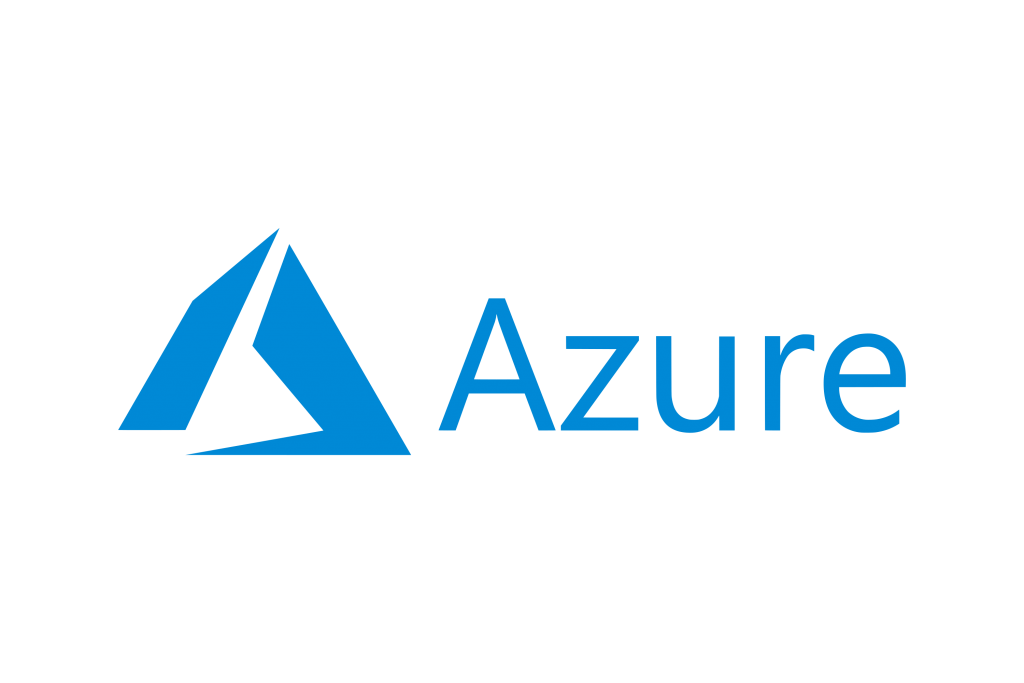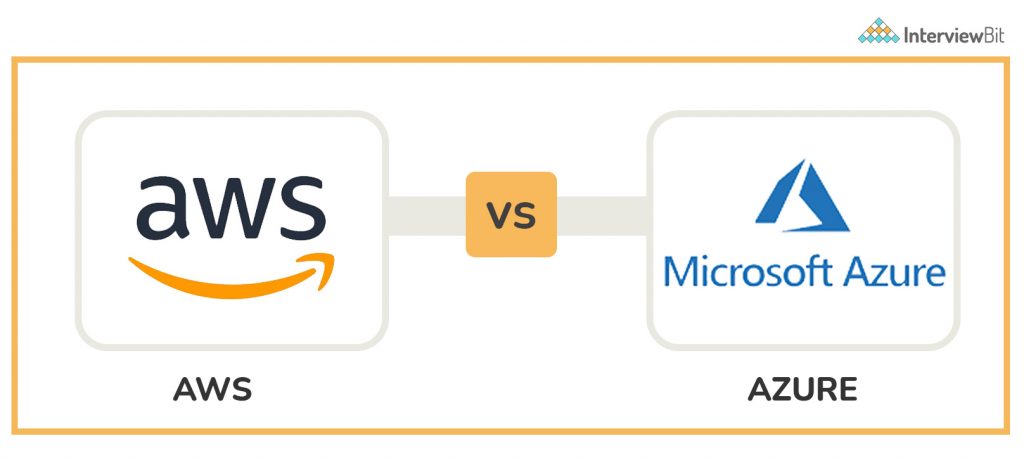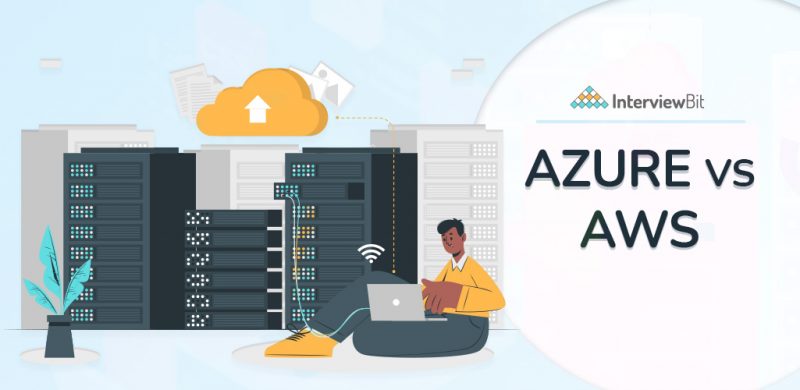Cloud computing is a popular topic these days. This approach, which makes resources (such as virtual computers, apps, and storage) available to customers through the Internet, has become a must-have for organizations wanting to reduce costs and enhance flexibility. It’s critical to learn about all available alternatives and select the best possible provider before opting to shift to a cloud-based environment. In today’s age of Big Data and Data Science, cloud computing is the platform of choice.
Various cloud service suppliers have competed for supremacy in the Cloud sector as Cloud Computing has reached its pinnacle. AWS and Azure have been unrelenting in their pursuit of the top spot for quite some time. Not only the educational sector, but various corporations seek to compare AWS and Azure before deciding whether or not to shift to a cloud-based environment. Both AWS and Azure are strong performers, with equality in nearly all use scenarios. The question that most people are concerned about is which Cloud vendor to select, that is, Azure vs AWS. We’ll compare AWS and Azure in this article to help you figure out which one best meets your business needs.
What is AWS?

Amazon Web Services, or AWS, is a cloud computing platform created and maintained by Amazon. It is the most comprehensive and widely used cloud platform in the world, with over 200 fully-featured services available from data centres all around the world. AWS is used by millions of clients, including the fastest-growing startups, largest corporations, and top government agencies, to reduce costs, improve agility, and accelerate innovation.
Confused about your next job?
Platform as a Service (PaaS), Infrastructure as a Service (IaaS), and Software as a Service (SaaS) are the three categories of AWS services (Saas).
AWS offers more services and features than any other cloud provider, ranging from traditional infrastructure technologies like computation, storage, and databases to emerging technologies like machine learning and artificial intelligence, data lakes, analytics, etc. This makes moving your existing apps to the cloud and building practically anything you can imagine faster, easier, and more cost-effective.
What is Azure?

Microsoft Azure is a cloud service platform developed by Microsoft that caters to a variety of departments, including cloud computation, storage, database management, networking solutions, and developer tools, among other features, to assist an organization in becoming more scalable and expansive in its reach and performance. Azure’s services are divided into three categories: platform as a service (PaaS), software as a service (SaaS), and infrastructure as a service (IaaS). Developers may now construct, organize, and administer services and applications in the cloud using these three services.
Azure is the cloud to trust, with over $1 billion invested in research and development and excellent security specialists on hand to protect your data. With the most extensive compliance coverage of any cloud service provider, you can simplify compliance and secure your data. With over 90 compliance offerings, Azure leads the market.
Key Difference
Azure and AWS appear to be quite comparable technologies on the surface. They’re built to cover a lot of the same ground and provide similar capabilities to tackle the same problems. However, there are some key differences between the two :
- Although both Azure and AWS offer a hybrid cloud, Azure does it better.
- Express routes are available on Azure, whereas direct connections are available on AWS.
- AWS provides greater open source community interoperability, such as Jenkins, GitHub, and Linux whereas Azure is easy to use and integrates nicely with Microsoft’s tools and technologies.
- AWS security is supplied via specified roles with access management, whereas Azure security is delivered by granting rights to the entire account.
- AWS has a Virtual Private Cloud, whereas Azure has a virtual network cloud.
- There are 140 availability zones in Azure, compared to 61 in AWS.
AWS vs Azure

| Particulars | AWS | Azure |
|---|---|---|
| Initiation date | AWS was launched in 2006. | Azure was launched in 2010. |
| Availability zones | AWS cloud spans 61 availability zones. | Azure cloud spans 140 availability zones. |
| Network | AWS offers Virtual Private Cloud (VPC) network. | Microsoft offers Virtual Network (VNET). |
| Pricing | AWS charges Per hour. | Microsoft charges Per minute. |
| Storage services | AWS offers storage services like: – S3 – Buckets – EBS – SDB – Domains – Easy to use – SQS – CloudFront – AWS Import/Export | Microsoft offers storage services like: – Blob Storage – Containers – Azure Drive – Table Storage – Tables – Storage stats |
| Open-source | More open-source options are available | Less open to open-source community |
| Hybrid cloud | AWS is continuing to improve its hybrid cloud solutions. | Microsoft Excel is in the hybrid cloud market and has an advantage over AWS. |
| Government cloud offerings | In terms of government cloud offerings, it has an advantage over Azure as AWS provides comprehensive security measures, better controls, auditing, security credentials, hybrid IT infrastructure. | There is a limited reach when it comes to government cloud offerings. |
| Ecosystem | AWS provides a software marketplace with a large number of partners. | Azure’s ecosystem is limited, with only a few Linux alternatives. |
| Licencing | Users can choose from a variety of license choices on Amazon. | Offers less flexibility than AWS as the users need to meet specific requirements and it offers mobility only for qualifying application servers. |
| Big data | EBS storage is ideal for handling big data. | Standard storage has numerous challenges with big data, necessitating the use of premium storage. |
| Security | User-defined roles with exceptional permission controls offer security. AWS’ implementation of granular IAM and security groups is also outstanding. | Azure Active Directory is a single source for permission management and authorization. Unlike AWS, where each account’s users, federation, and access must be configured individually, Azure allows you to do so from a single location. |
| Long term data archiving and retrieval | Amazon Glacier allows for long-term data archiving and retrieval. | There is no option for long-term data archiving and retrieval yet. |
| Database services | – MySQL – Oracle – DynamoDB – Amazon aurora | – MS SQL – SQL Sync |
| Maturity | AWS provides a more mature environment for Big Data. | Less mature environment for Big Data than AWS. |
| Machine access | Machines can be accessed independently in AWS. | Machines are grouped into cloud services and respond to the same domain name but different ports. |
| Computing power | Elastic Compute Cloud (EC2) is used by AWS to create its own VMS and for scalable computing. | To build a VM, Azure users select Virtual Hard Disk (VHD), which is equal to a Machine Instance. |
As seen above, both Cloud platforms have impressive capabilities, making it difficult to choose a clear winner. When it comes to Hybrid Cloud and integrating with Microsoft’s stack of products, Azure is superior, but AWS offers more flexibility and features. It all boils down to your or your company’s requirements. As a result, make an educated decision.
Not only the educational community, but several organizations want to compare AWS and Azure before deciding whether or not to move to a cloud-based environment. The reality, however, is that this is not a technological decision. Both AWS and Azure are strong performers, with equivalence in nearly all use cases. Choosing between Azure and AWS is more of a business decision that is based on the organization’s needs.
For example, if a company requires a strong Platform-as-a-Service (PaaS) provider or Windows integration, Azure is the best option. However, if a company requires infrastructure-as-a-service (IaaS) or a diverse set of tools, AWS may be the best option. Take an informed decision!
Advantages of AWS
- Innovation – Many analysts believe that it is not just Amazon Web Service’s affordable price, but also its dedication to innovation, that has allowed it to boast about having the names of many of the world’s most well-known corporate brands among its clients.
- Easy to use – This is at the top of the Amazon Web Services advantages list. AWS is simple to use since the platform was created with rapid and secure access in mind. Users have complete control over their data and may make changes anytime and anywhere they choose. Starting with AWS as a cloud provider is significantly easier for most businesses than starting with Azure or Google Cloud Platform. AWS provides all of the necessary information, documentation, and video tutorials to assist you in learning how to utilize all of its services.
- Cost-effective – Whether you’re a small business or a large corporation, you can only save money if you can utilize the services that your company requires. AWS provides cost-effective pricing when compared to the costs of competing for on-premises services. Consider the cost of running your apps on-premises or in a co-location facility. That has the potential to be enormous. One of the most appealing aspects of adopting AWS is its cost-effectiveness.
- Security – AWS prioritizes protecting your company from potential data breaches and hacking threats. They have several well-regarded compliance certifications and adhere to international security regulations.
- The fact that companies like NASDAQ, HealthCare.gov, and Dow Jones utilize the AWS platform demonstrates how reliable and secure it is as a cloud service. You may use Identity and Access Management (IAM) with CloudTrail to keep track of all tasks completed by different clients. Ability to create built-in firewall rules that range from open to completely private, or somewhere in between, to regulate access to events.
- Scalability and flexibility – Whether you’re moving to the cloud for the first time or migrating from another cloud service platform, AWS has everything you need to improve your IT infrastructure. Their methodology allows you to scale assets up or down, so you won’t have to worry if the volume is an issue or if your needs change. AWS offers us technologies like Auto Scaling, AWS Tools, and Elastic Load Balancing that help us decrease the time we spend on work. You may choose them based on your need. These programs are available whenever you need them.
Disadvantages of AWS
- Limitation on resources – AWS places resource restrictions by default, which vary by location. Images, volumes, and snapshots make up these resources. You can only run a certain amount of instances per region. It also offers minimal information for Amazon EC2 and Amazon VPC console resources. You can, however, ask for a higher limit.
- Limitations on security – AWS limits certain of its features that cannot be altered since security is one of the most important characteristics. These are the features that cannot be changed:
- EC-2 classic: Each Security Group can have a maximum of 100 permissions, and each instance can have a maximum of 500 permissions.
- EC2-VPC: Each VPC can have up to 100 security groups.
- Cloud computing issues – When moving to the cloud, AWS has standard cloud computing concerns such as downtime, limited control, and backup protection. It might be due to a power outage or a lack of network access with the cloud provider. These faults, however, can be addressed with time. As a result, they are only a temporary problem.
Advantages of Azure
- Improved scalability – Scalability is a key consideration for any infrastructure-related investment since business demands vary over time, whether for expansion or downsizing. Microsoft Azure’s public cloud infrastructure enables businesses to scale up their storage and processing capacity on demand, providing maximum capacity during peak traffic periods and long-term growth initiatives. It’s readily scalable to match your IT requirements.
- Business sustainability – Built-in analytical tools to shape and visualize data for better decision-making are included in the Microsoft Azure stack of technologies. Companies may enhance business operations more precisely by using real-time dashboards that include customer response times, data and information flow and processing, and the capacity to analyze large data. Advanced analytics may help businesses segment consumers based on their behaviour and provide a more tailored experience, increasing customer happiness.
- Higher availability and redundancy – Microsoft Azure, unlike many of its competitors, offers high availability and redundancy across all of its data centers. Azure is well-suited to organizations with a global reach since it runs in 55 regions across the world and is offered in 140 countries. Microsoft is able to offer a service-level agreement that guarantees 99.95 per cent availability, which equates to less than 4.5 hours of downtime each year, because of its huge footprint.
- Cost-effective platform – Microsoft’s pay-as-you-go approach lets you pay only for the resources you use while utilizing Azure services to develop or grow them. Because infrastructure is handled by Microsoft on Azure, IT management expenditures are kept to a minimum. It seamlessly links datacenters to the cloud and, unlike any other cloud provider, covers 42 regions.
- Hybrid capabilities – Azure is unique in that it offers hybrid capabilities. Between on-premises and the public cloud, Azure allows for simple mobility and a uniform platform. To increase usability and speed, Azure offers a larger selection of hybrid connections, including virtual private networks (VPNs), caches, content delivery networks (CDNs), and ExpressRoute connections.
- Security and disaster recovery – Security, compliance, and disaster recovery – Microsoft recognizes the significance of security and has built Azure to keep you one step ahead of the competition when it comes to data security. Azure offers several compliance certifications and is a preferred choice for cloud services in high-risk industries such as health care and government. The platform as well as the end consumers are both safe. Multi-factor authentication and advanced disaster recovery capabilities that can restore data in a matter of hours are among the additional services available to meet corporate demands.
Disadvantages of Azure
- Requires management – Microsoft Azure, like everything else, has a few possible drawbacks. IaaS (Azure) takes your company’s computational capacity from your data centre or office to the cloud, unlike SaaS systems where the end-user consumes information (for example, Office 365). Azure, like most cloud service providers, requires skilled management and maintenance, including patching and server monitoring.
- Requires expertise – Unlike local servers, Microsoft Azure necessitates the use of expertise to ensure that all of the essential components are operational. One typical blunder made by company administrators is over-provisioning cloud services. In the cloud, a minor error is difficult to detect, costing the company thousands of dollars each year.
- Improved scalability – Scalability is a key consideration for any infrastructure-related investment since business demands vary over time, whether for expansion or downsizing. Microsoft Azure’s public cloud infrastructure enables businesses to scale up their storage and processing capacity on demand, providing maximum capacity during peak traffic periods and long-term growth initiatives. It’s readily scalable to match your IT requirements.
Conclusion
In many aspects, AWS and Azure are identical, yet they differ in others. In all honesty, putting these two platforms against one another would be an unfair comparison. After all, the cloud platform you choose is determined by your company’s requirements. Both of these systems have their own set of advantages and problems that users must contend with. And one of these two options will benefit your company and your online reputation.
Additional Resources
Frequently Asked Questions
Q.1: Is Azure better than AWS?
AWS and Azure have similar core characteristics in terms of configurable computing, storage, networking, and price. When it comes to Hybrid Cloud and integrating with Microsoft’s stack of products, Azure is superior. It all comes down to the needs you or your company have.
However, there are various elements to consider, and the decision between the two—which is better or whether to utilize a combination of cloud service providers—will ultimately be based on each organization’s particular needs and how the findings of an Azure vs AWS comparison correspond with those needs.
Q.2: Which is easier: Azure or AWS?
If you’re willing to learn the system, Amazon has more features and customizations. AWS, according to IT specialists, provides a lot of power, flexibility, and customization freedom, as well as support for a wide range of third-party connections. However, Azure is easier to use if you’re a Windows administrator because it’s a Windows platform that doesn’t require you to learn anything new. It’s straightforward to construct a hybrid environment by combining on-premises Windows servers with cloud instances. Azure is compatible with SQL databases and Active Directory. Choose AWS if you want to dive into Amazon’s deep services framework.
Q.3: Is AWS the same as Azure?
AWS and Azure are very comparable in terms of basic functionality. Self-service, security, quick provisioning, auto-scaling, compliance, and identity management are all prevalent features of public cloud services.
AWS, on the other hand, has the most depth of the two, with 140 services spanning compute, database, analytics, storage, mobility, and developer tools. Keep in mind, too, that they have an edge over competitors because they’ve been around the longest. Azure, on the other hand, is strong in terms of features and services and has a parent corporation with the resources to compete with Amazon.
Q.4: Which is better for job opportunities AWS or Azure?
Candidates who are familiar with in-house data systems will benefit from an Azure certification because it is backed by the Microsoft brand. Over 55% of Fortune 500 firms use Azure, and obtaining Azure certification boosts the chances of candidates landing a job at one of these companies. Because of the large number of enterprises that use the platform, AWS certification bears more weight. According to Statista, Amazon Web Services (AWS) is the clear market leader among public cloud platform providers, with 76 per cent of worldwide organizations running or experimenting with apps on Amazon’s cloud. Microsoft is in second place with a 63 per cent market share.
Q.5: What pays more AWS or Azure?
According to PayScale, AWS just edges out Google Cloud for the highest average income across all positions when looking at big-picture, across-all-roles salaries based on public cloud capabilities (AWS, GCP, Azure March 2021).




